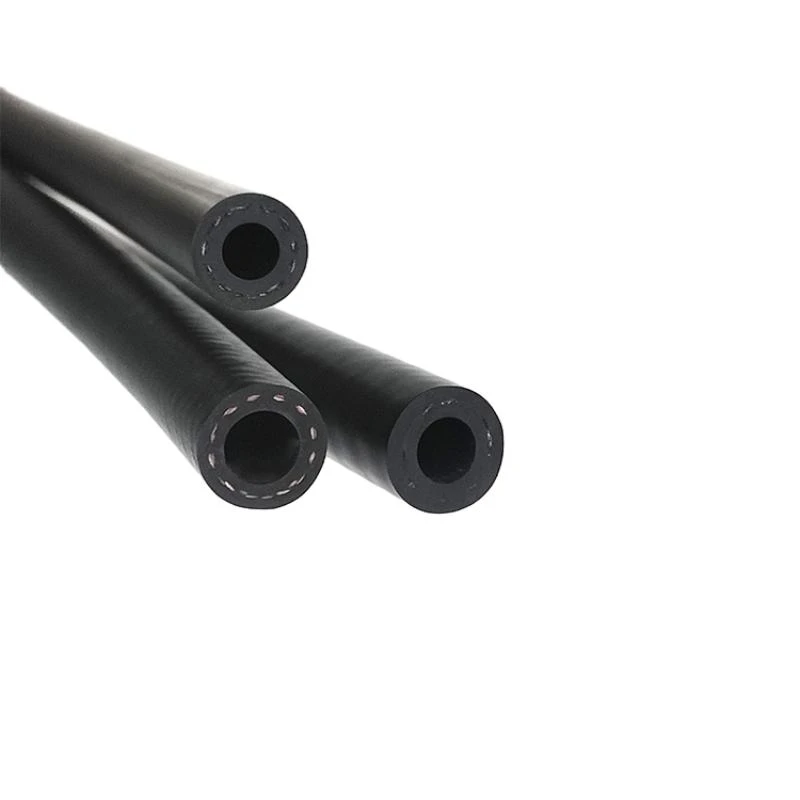Rubber Hoses for Power Steering Systems and Their Importance in Vehicle Performance
ಆಕ್ಟೋ . 12, 2024 09:39 Back to list
Rubber Hoses for Power Steering Systems and Their Importance in Vehicle Performance
Understanding Power Steering Rubber Hoses Importance and Maintenance
Power steering systems are essential components of modern vehicles, offering drivers enhanced control, comfort, and safety. One crucial element of this system is the power steering rubber hose, which plays a vital role in transmitting hydraulic fluid, enabling the steering mechanisms to function smoothly. This article delves into the significance, composition, potential issues, and maintenance of power steering rubber hoses.
Importance of Power Steering Hoses
Power steering rubber hoses are primarily responsible for carrying hydraulic fluid from the power steering pump to the steering gear or rack. This hydraulic fluid creates pressure, allowing the vehicle to steer with minimal effort. The benefits of a well-functioning power steering hose are manifold. It enhances maneuverability, particularly in larger vehicles, minimizes driver fatigue during long drives, and significantly improves overall driving experience. In essence, these hoses are the unsung heroes that ensure that drivers can handle their vehicles effortlessly.
Composition of Power Steering Rubber Hoses
Typically, power steering hoses are made from high-quality synthetic rubber to withstand extreme temperatures and pressures. They are reinforced with various materials such as nylon or steel braids to prevent burst risks and maintain flexibility and durability. With the continued advancements in material science, manufacturers are increasingly using hoses that resist abrasion, cracking, and corrosion, ensuring longevity and reliable performance.
Common Issues with Power Steering Rubber Hoses
Despite their robust design, power steering rubber hoses can encounter several issues over time, mainly due to wear and tear, exposure to heat, and corrosion from the hydraulic fluid
. The most prevalent problems include1. Leaking Hoses Over time, rubber hoses may become brittle or develop cracks, leading to leaks. A leaking power steering hose can reduce the system's efficiency, causing a drop in fluid levels and affecting steering performance.
2. Kinking or Blockages If a hose is improperly routed, it may kink or bend sharply. This not only restricts fluid flow but can also lead to hose failure. Blockages can also occur due to contamination in the hydraulic fluid, which can severely impair the system's operation.
power steering rubber hose

3. Heat Damage The power steering system generates significant heat, especially during aggressive driving or in stop-and-go traffic. Over time, excessive heat can deteriorate the rubber, leading to cracking or complete failure.
Maintenance Tips
To ensure the longevity and proper functioning of power steering rubber hoses, regular maintenance is essential. Here are some tips
1. Routine Inspections Check hoses regularly for signs of wear, such as cracking, swelling, or leaks. Early detection can prevent further damage and costly repairs.
2. Fluid Levels Monitor the power steering fluid level. If it appears low, inspect the hoses for leaks and top up the fluid as necessary.
3. Avoiding Exposure Ensure that the hoses are not directly exposed to exhaust heat or other hot components. Proper routing and heat shielding can help mitigate damage from extreme temperatures.
4. Professional Servicing When in doubt, consult with automotive professionals. They can perform thorough checks and recommend replacements if necessary.
Conclusion
Power steering rubber hoses are critical to maintaining a vehicle’s steering performance and overall safety. Their role in the hydraulic steering system cannot be overstated, yet they often go unnoticed until issues arise. By understanding their function and adhering to a regular maintenance schedule, drivers can ensure that their steering systems operate efficiently and safely, ultimately contributing to a better driving experience. Investing time in the upkeep of these vital components can yield dividends in vehicle performance, safety, and longevity.
